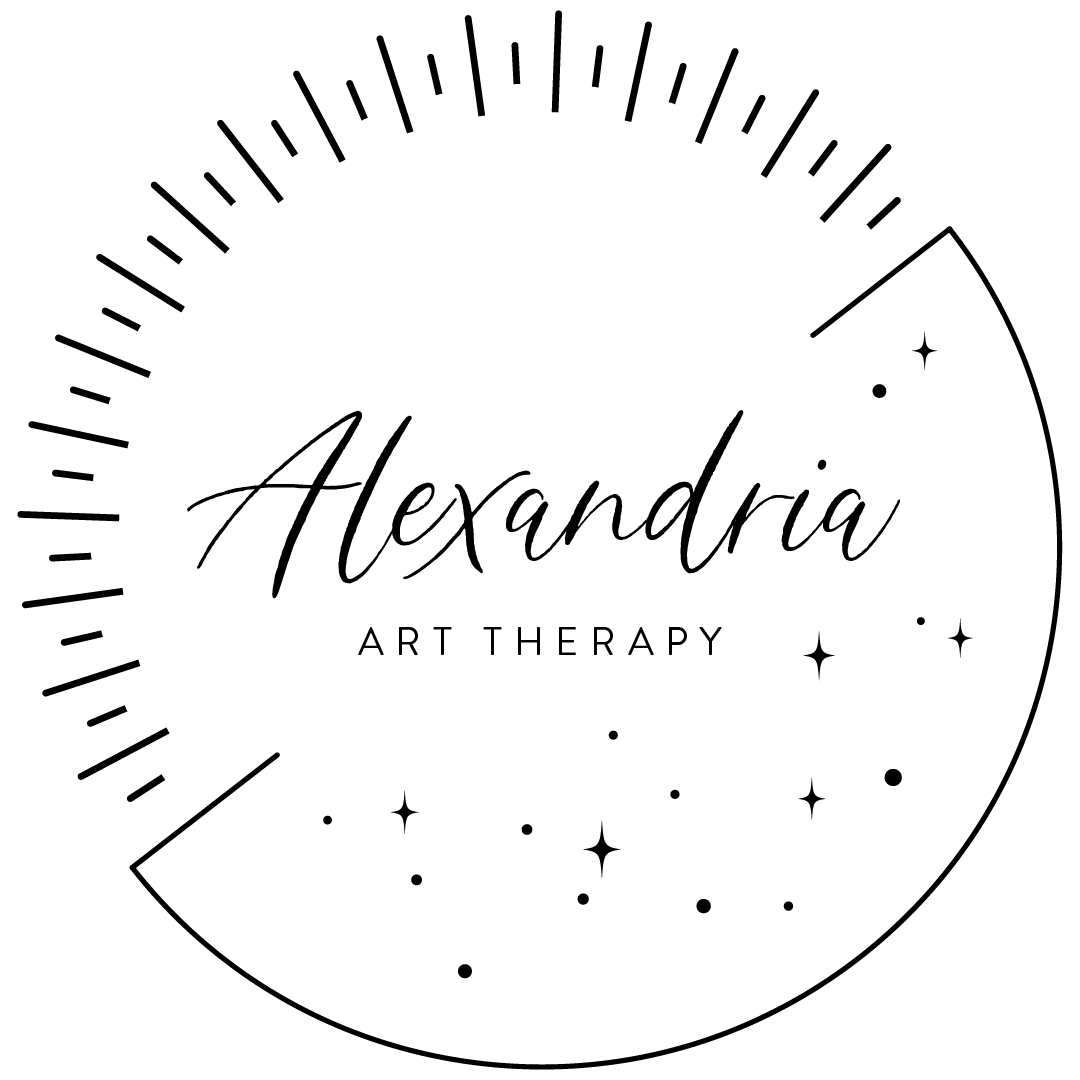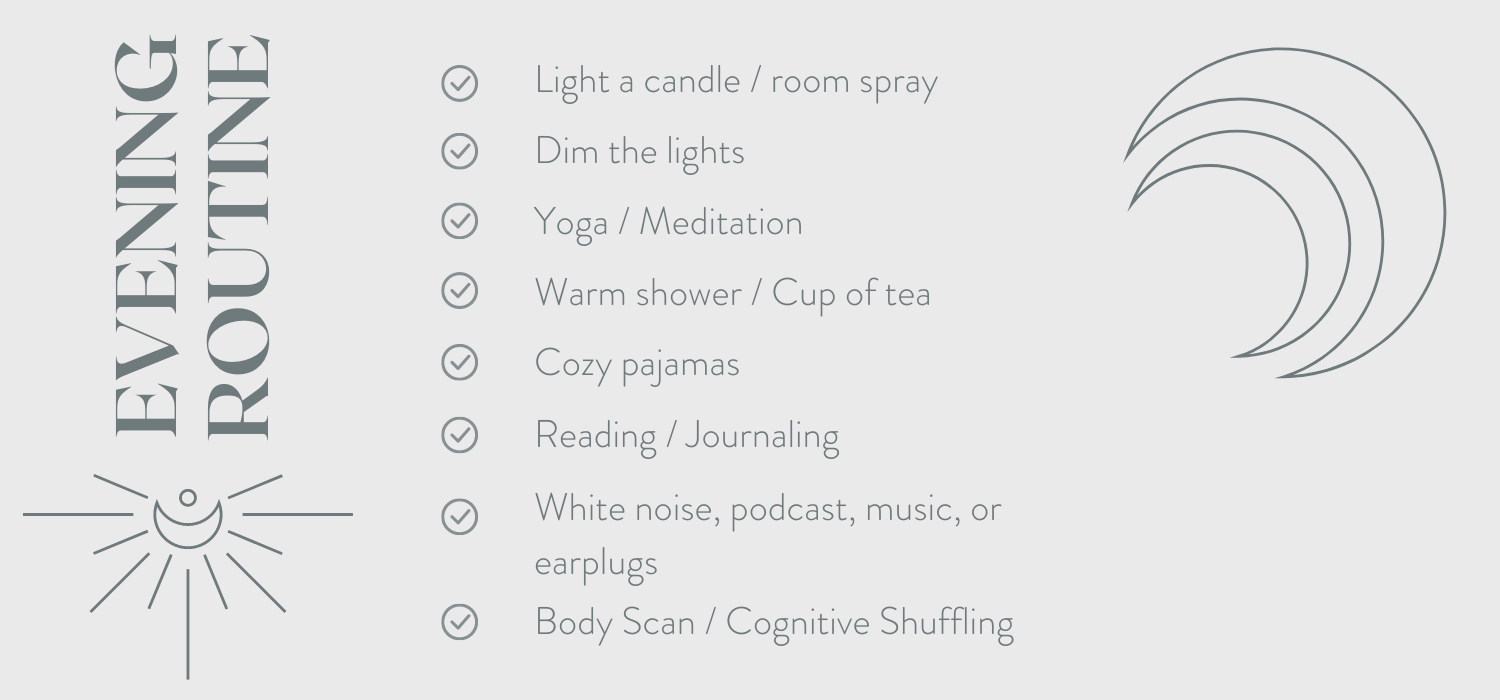Ask a Therapist: Why Can’t I Sleep?
Trouble sleeping, whether you’re having difficulty falling asleep or waking up in the night, can have a range of causes, from anxiety to perimenopause to genetics. But because trouble sleeping is so common, it can be hard to get an idea of what to try first and when to ask for help.
In this week’s Ask a Therapist blog, we chat with Clinical Director Adele Stuckey and Associate Art Therapists Jenna Kelley and Laura Miles about what to do when you think anxiety might be the culprit. Why can’t I sleep? How can I stop my mind racing at night? And what should I try before seeking extra help?
DAYTIME HABITS & ROUTINES
LAURA MILES: I so wish there was some magical solution besides medication for getting good-quality sleep. For something we need so much of, we're remarkably bad at sleeping! I remember working in hospitals and the psychiatrists would often talk about how it can take an entire year to get a sleep schedule on track.
Some of this is about understanding your own energy patterns and, if you have the resources, structuring your day to support it. This gets hard with things like jobs and small children, but there are ways you can make small adjustments while you're awake that actually improve your sleep.
If you can, do your hardest work at the time of day when you feel most awake and focused. I am not a morning person (so sorry to anyone who wants to have an 8am session, it's just not going to happen!), so I work a later work schedule and see clients into the evening.
When you’re structuring your day, try to avoid taking a long nap late into the afternoon. I realize this can be especially hard if you’re coming off a night of poor sleep. Instead, try a short mid-day rest to reset without disrupting your sleep schedule.
JENNA KELLEY: Our exercise and food habits during the day can have a pretty big impact on our sleep. Getting enough exercise can help with insomnia, but working out in the evening can sometimes keep people awake, so the timing is key. Certain foods and supplements promote sleep–think foods with magnesium and vitamin B, as well as your usual suspects like melatonin. Limit caffeine after noon unless you plan to go to bed late. Try moving your dinnertime a bit earlier so that the digestion process doesn’t interfere with your sleep. If you’re having trouble sleeping, you may also want to limit salty foods at dinner and make sure you’re not drinking too many fluids right before you go to bed.
NIGHTTIME HABITS & ROUTINES
ADELE STUCKEY: The first thing to consider is what we like to call “sleep hygiene” -- dim the lights at a certain hour, create a caffeine cut-off time like Jenna mentioned, and try out a nighttime routine that reminds your brain it's time to wind down. This might include stretching or restorative yoga, a warm shower, a nighttime tea, white noise, or a calming scent spray or candle. Consider keeping a piece of paper by your bedside to jot down the thoughts to clear them from your mind -- even temporarily. Perhaps an evening guided meditation will create a focus for your mind while you relax into a calm state.
JENNA: Consider your activities before bed–doing art after dinner can release some of the energy from the day. Coloring a mandala can help you focus or channel that energy–other people like the effect of watercolor painting. Limiting screen time and blue light promotes sleep, but we all know screen time can also be calming if you seek out the right things. I like watching videos of nature, moving water, or people making art–my new favorite is fluid art and paint pouring.
Texture and temperature can affect your sleep. Try soft, light, and airy pajamas and bedding, like modal or jersey knits, or cotton-bamboo blends. Set your house temperature to the cooler side, and use a weighted blanket. The environment of your room can also help promote sleep. Choose a light, calming color for your walls, limit screens in your bedroom, and try to keep things uncluttered.
I’m also always here with the gear recommendations! Calming scents can be really nice at night (though don’t go too strong, or it’ll keep you awake)--I like this humidifier/aromatherapy diffuser. A red night light is supposed to stimulate the production of melatonin–I got one of these for my daughter, and she loves it. The Lectrofan Evo sound machine has multiple levels of white noise or fan noise. We have these at the office, and I also have one for home. For mindfulness and meditation, I recommend the Calm app or Headspace.
ADELE: Creating your night-time routine can be individual and fun. You can think of it like choosing items from an à la carte menu to see what works best. Remember to tune into all of your senses. Do you fall asleep better in total darkness? With earplugs? Or with white noise or music playing? Is a scent calming or agitating for you?
Here’s a sample evening routine “menu:”
Candle / room spray
Dim the lights
Yoga / meditation
Warm shower / cup of tea
Cozy pajamas
Reading / Journaling
White noise, podcast, music, or earplugs
Body Scan or Cognitive Shuffling
LAURA: When it comes to sleep, the first thing that comes to mind for me is phone usage. I've been having conversations with clients lately about how much time they're spending on their phones, as well as what they're actually doing with that time.
Night-time rituals really are definitely key–keeping a regular bedtime, adjusting the lights, creating a soothing environment. No matter how tired you are, always, always, always wash your face! I also like incorporating a gratitude ritual into my night time routine. It can be short and simple like writing down (on paper!) at least one thing you're grateful for since the last time you went to sleep.
JENNA: I definitely recommend adding journaling to your night time routine if you find you have a lot of anxious thoughts. It can be cathartic to get your thoughts out on paper, allowing them to be pinned down for later. Ruminating thoughts can take up unnecessary mental space, and freeing up that space can decrease your anxiety. You don’t have to hold it all. You can choose when you would like to go back to it. Sleep should be your healing and mental time off.
IN THE MIDDLE OF THE NIGHT
LAURA: The prep work of night time routines and sleep hygiene is key, but it’s also good to have something you can do when you’re encountering sleeplessness in the middle of the night. I like body-based practices like square breathing and Progressive Muscle Relaxation for regulating your nervous system and promoting good sleep.
ADELE: If you’re having trouble falling asleep or waking up in the night, I’d recommend trying "Cognitive Shuffling" to help when your mind wanders.
The basic concept is to coax your brain away from thoughts and words and back to the emphasis on images, which can help it make the leap into dreaming. The cognitive shuffling technique involves visualizing objects one after another until you drift off. You can structure it yourself, like imagining a different object for each letter of the alphabet (A, picture an apple, B, picture a basketball, C picture a crocodile) or even use an app that provides the nouns aloud for you for a set amount of time.
ROUTINES FOR THE MORNING
LAURA: It's also useful to come out of sleep in an intentional way–having routines to adjust to the morning is the other end of good sleep practices. Have an alarm clock that's not your phone. Don't check your phone right away, especially not your emails! Stretch your muscles, drink a glass of water, and splash some cool water on your face. Morning rituals like tea or coffee also help the transition from sleep to awake. Think of every character in a Nancy Myers movie–they wake up in the fluffiest beds ready to make coffee in their spotless kitchens and then take on the world in white turtlenecks. How do they do this? Money! And routines.
WHERE & WHEN TO GO FOR HELP
ADELE: If you've tried a variety of strategies and still struggle with nighttime anxiety or insomnia, consider reaching out to a mental health professional or a medical provider, like a psychiatrist, acupuncturist, or homeopathic provider.
LAURA: I'm a huge fan of acupuncture for almost any concern, and especially for sleep. My acupuncturist just recommended an essential oil blend for sleep–so I'll report back how it's working!
JENNA: If your lack of sleep is affecting your daily functioning, then it might be time to consult a doctor about medication. If nightmares, interrupted sleep, or breathing issues are interfering with your ability to sleep all night, a sleep study can also be helpful.
Don't miss an update--subscribe to our newsletter on Substack to receive new blog posts & the latest news in your inbox every other week.



